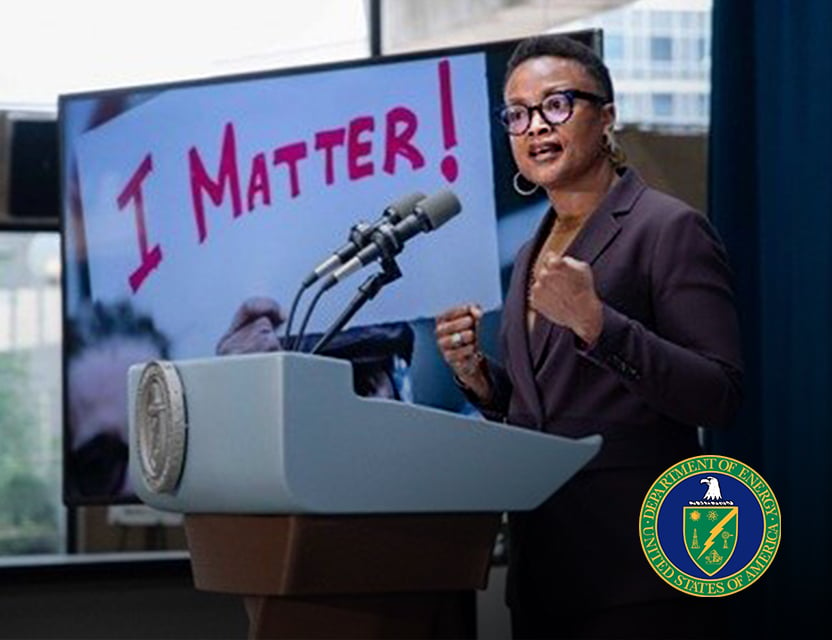The U.S. Department of Energy’s (DOE) Office of Economic Impact and Diversity hosted its first-ever Justice Week. The five-day event convened external and internal stakeholders to discuss the Department’s justice and equity efforts and the best path toward a new energy system.
What's the role of the DOE Office of Economic Impact and Diversity?
The US DOE Office of Economic Impact and Diversity Is responsible for the implementation of the Justice40 plan. The office also just released its first-ever Diversity, Equity, Inclusion, and Accessibility (DEIA) Strategic Plan to underscore the Department’s commitment to creating a workplace that celebrates Americans of all backgrounds. The plan outlines Departmental actions to sustain an inclusive and accessible work environment by strengthening recruitment, retention, and promotion while removing inequitable barriers to advancement and development opportunities. The plan represents the culmination of months of work at DOE to support President Biden’s Executive Order 14035, which reaffirms that the American workforce is at its strongest when it reflects the diverse communities it serves.
What is energy justice and why does it matter to the Department of Energy?
DOE is committed to advancing environmental justice and tackling the climate crisis through equity-centered solutions, including the implementation of President Biden’s Justice40 Initiative and DOE’s Equity Action Plan (EAP). Two days of Justice Week programming were dedicated to diving deeper into these initiatives and reviewing the actions the Department has made to date, connecting with external stakeholders, and gaining insights about optimizing DOE’s equity and justice efforts.
WATCH THE RECAP: Equity in Procurement
WATCH THE RECAP: Advancing Racial Equity and Providing for Underserved Communities
ALLY Energy hosted a delegation from the U.S. Department of Energy’s (DOE) Office of Economic Impact and Diversity office in August to tour the Energy Capital. Read more about those engagements here.
- DOE Visits Houston to Talk Jobs, Resilience, and a Just Transition
- The Clean Energy Workforce of the Future
- The Rational Middle and a Just Energy Transition
To get engaged further, sign up on the DOE website to get more information.


.jpg)

